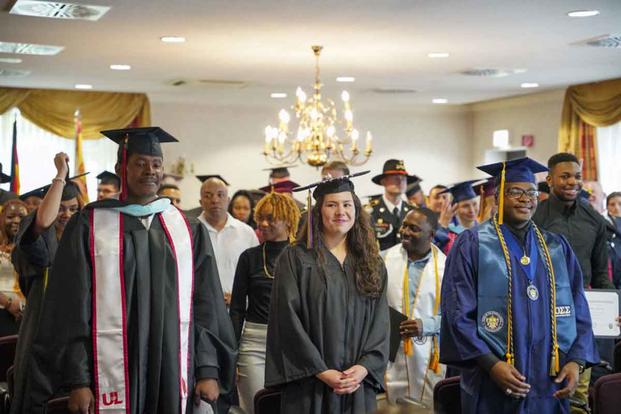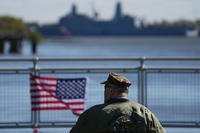A newly expanded military spouse scholarship program run by the Defense Department will be capped at the first 1,250 approved applicants, officials announced Tuesday.
In the past, the My Career Advancement Account (MyCAA) program offered $4,000 in financial assistance to spouses of service members in paygrades E-1 to E-5, W-1 to W-2 and O-1 to O-2 seeking to earn professional licenses, certificates or associate's degrees.
The program was expanded March 23 to include spouses of E-6 and O-3 troops. But that enrollment includes a firm cap on the number of spouses who can use the program, thanks to funding limits, officials said Tuesday in an email on the expansion.
"The first 1,250 approved applicants in paygrades E-6 and O-3 will receive MyCAA financial assistance based on available funding," the email said.
The recently announced expansion and the new enrollment cap follow more than a decade of plummeting use triggered by program changes made after its initial explosive popularity.
First launched in 2009, MyCAA allowed spouses in families of all ranks in any service except the Coast Guard to receive up to $6,000 in tuition help with no limits on the degree type on which it could be used. But after 130,000 spouses applied within a year of its initial rollout, the scholarship quickly outpaced its funding, and officials abruptly shuttered it to new applicants in early 2010.
MyCAA was then reintroduced in 2011 with paygrade guardrails, the $4,000 cap and rules allowing it to pay only for education or licensing in certain fields. Use then dropped 40% between 2011 and 2017, according to a 2019 Government Accountability Office report. A 2020 change ordered by Congress added Coast Guard users and removed the career field limits.
The new expansion to E-6 and O-3 service member spouses was announced in a memo from Defense Secretary Lloyd Austin as part of a sweeping expansion to military family support.
"Data shows that the first cohort of spouses who used this benefit were more likely to be employed and earn more compared to those who did not participate," Austin wrote in the memo. "Further, participants' service member spouses were more likely to remain in the military."
-- Amy Bushatz can be reached at amy.bushatz@military.com.














